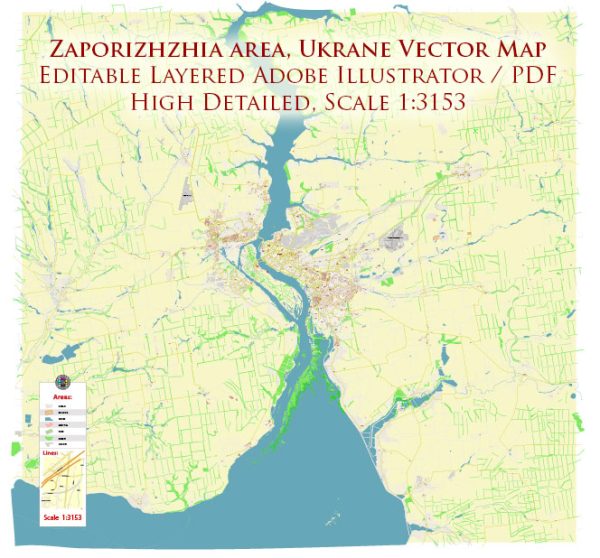Zaporizhzhia is a city located in southeastern Ukraine, situated in the Zaporizhzhia Oblast (province) on the Dnieper River. It is one of the largest cities in Ukraine and is known for its industrial and economic significance. When discussing the ecological aspects of Zaporizhzhia, there are several key points to consider:
- River and Water Resources: Zaporizhzhia is situated along the Dnieper River, which is one of the major rivers in Ukraine. The city relies on the Dnieper for its water supply, and the river plays a crucial role in the region’s ecological balance. Water quality and management are important factors in the city’s ecology.
- Industrial Activities: The city is an industrial hub, with a significant presence of heavy industries such as metallurgy, energy production, and manufacturing. These industries can have a substantial impact on air and water quality, and environmental regulations are essential for mitigating their effects.
- Air Quality: Industrial activities, transportation, and energy production can contribute to air pollution in the city. Efforts to reduce emissions and improve air quality are ongoing concerns for Zaporizhzhia.
- Green Spaces: Zaporizhzhia has some green spaces, parks, and recreational areas that provide a respite from the urban environment. These green areas contribute to the city’s ecological balance and provide residents with opportunities for outdoor activities and relaxation.
- Biodiversity: The region surrounding Zaporizhzhia is characterized by a mix of urban, agricultural, and natural landscapes. There may be efforts to protect and preserve local biodiversity, particularly in areas outside the city where ecosystems remain relatively undisturbed.
- Environmental Initiatives: Ukrainian authorities and local organizations may be involved in various environmental initiatives to address ecological challenges. These initiatives could include programs related to recycling, waste management, energy efficiency, and sustainable urban development.
- Climate: Zaporizhzhia experiences a continental climate with hot summers and cold winters. Changes in climate patterns, such as temperature variations and precipitation levels, can have ecological consequences for the region, affecting natural ecosystems and agriculture.
- Environmental Challenges: Like many urban areas, Zaporizhzhia faces ecological challenges related to pollution, waste management, and the conservation of natural resources. These challenges require continuous efforts and policies to promote sustainability and protect the environment.
It’s important to note that the ecological situation in Zaporizhzhia may change over time due to various factors, including economic development, government policies, and environmental awareness. Therefore, it’s advisable to consult local environmental agencies and organizations for the most up-to-date information on the city’s ecological conditions and initiatives.


 Author: Kirill Shrayber, Ph.D. FRGS
Author: Kirill Shrayber, Ph.D. FRGS